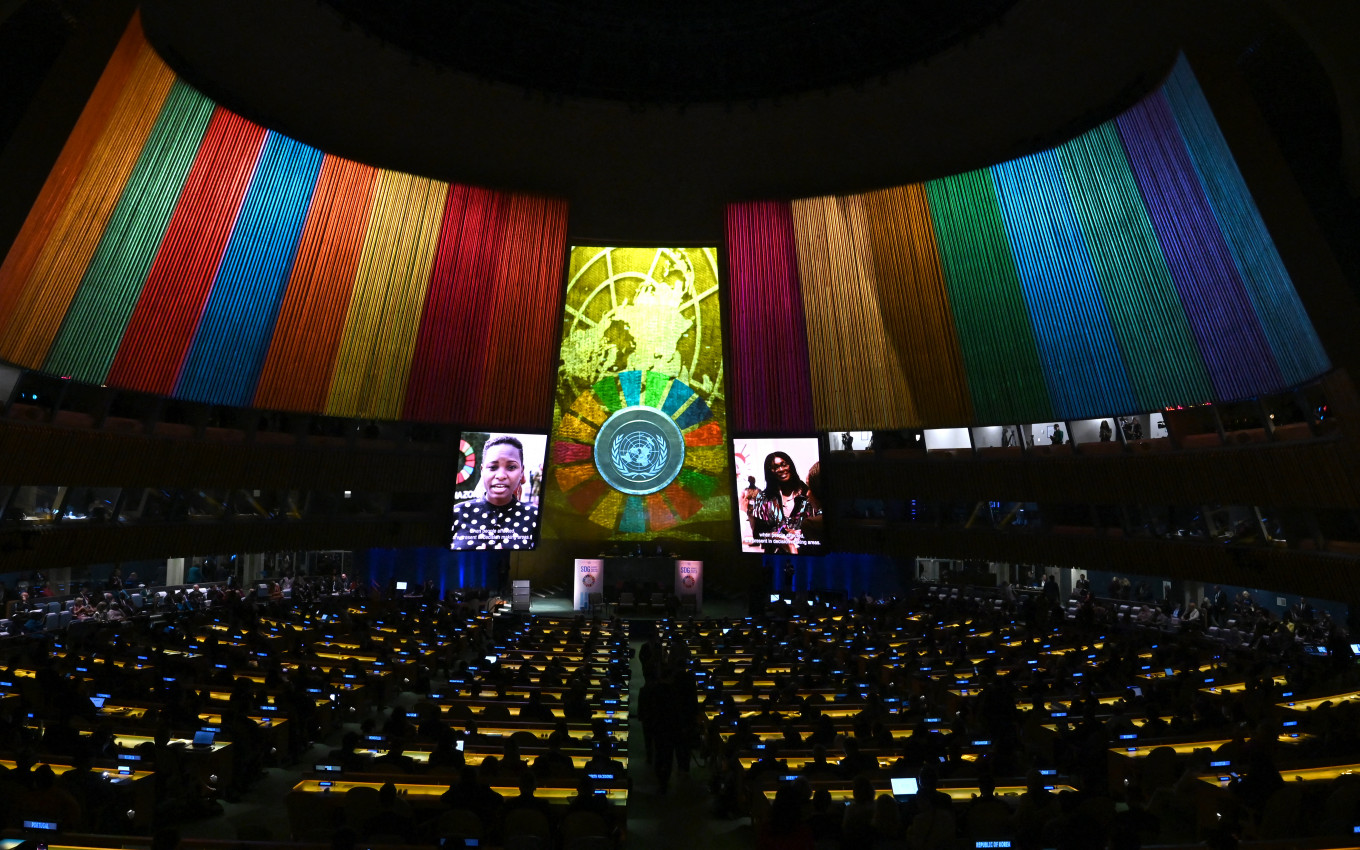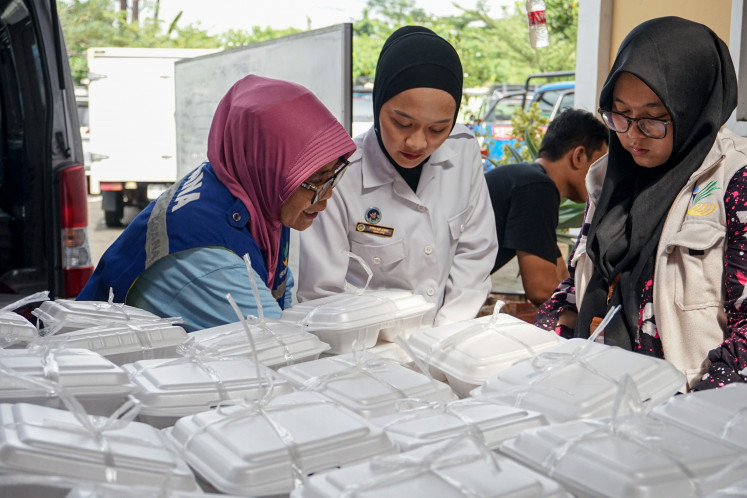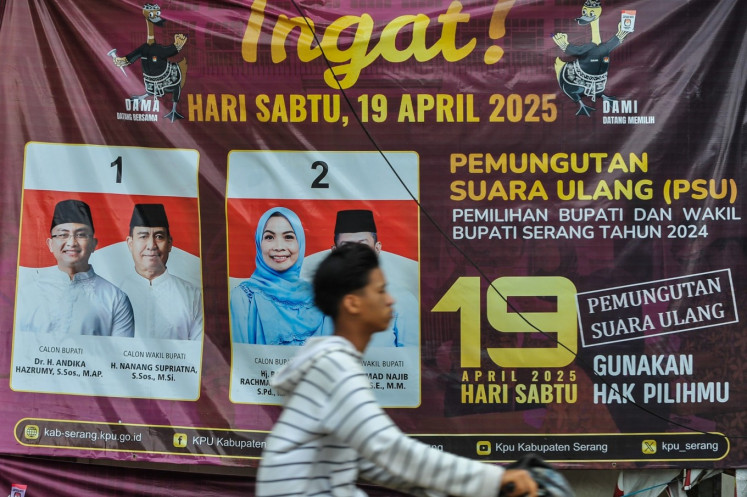Popular Reads
Top Results
Can't find what you're looking for?
View all search resultsPopular Reads
Top Results
Can't find what you're looking for?
View all search resultsCan AI offer the SDGs a lifeline?
With the global sustainability agenda critically behind schedule, a new AI-powered platform offers a novel approach to accelerating progress.
Change text size
Gift Premium Articles
to Anyone
T
he ambitious goal set by the United Nations in 2015, to achieve 17 Sustainable Development Goals (SDGs) by 2030, is, by all accounts, flagging. A mere 17 percent of SDG targets are on track. Nearly half show minimal or moderate advancement, and over one-third have stalled or even regressed since 2015. A new artificial intelligence-powered platform promises to coalesce disparate global efforts into a unified approach towards sustainability.
The sluggish pace can be partially attributed to a pervasive and insidious problem: fragmentation. Global efforts to tackle monumental challenges, from climate change to entrenched inequality, have largely operated in isolation.
Systemic fragmentation is a fundamental risk to SDG success and has multiple factors: a lack of coordination among stakeholders, siloed approaches and competing priorities that undermine holistic solutions. This can lead to disjointed policymaking, duplication of efforts and missed synergies. The SDGs are deeply interlinked, yet policies often treat them in isolation.
Fragmentation poses three critical challenges to SDG progress. First, policy incoherence creates unsustainable trade-offs: while synergies exist, for instance, between climate action and clean energy, fragmented approaches often pit goals against one another, such as rapid decarbonization exacerbating poverty or intensive farming boosting food production while degrading ecosystems.
Second, economic inefficiencies arise from duplication, where isolated projects (e.g., standalone water initiatives) miss opportunities for integrated, cost-saving approaches like the water-energy-food nexus while competing funding streams dilute impact.
Third, governance failures perpetuate silos: divided ministerial mandates (e.g., environment vs. economy) obstruct cross-sectoral solutions and fragmented data systems hinder adaptive policymaking.
Together, these challenges underscore how fragmentation undermines the systemic transformation required to achieve the SDGs. If unaddressed, fragmentation could lead to the failure of SDG achievement by 2030, increased costs, policy backlash and ecological collapse.
The World Bank estimates that average annual spending needed to address the global challenges of climate change, conflict and pandemics are US$2.4 trillion per year for developing countries between 2023 and 2030. This is stated as a small cost compared to not addressing these issues. The UN projects that between $5 trillion to $7 trillion per year to achieve a set of SDGs globally.
The issue is compounded by a complex array of regulatory frameworks across jurisdictions, creating significant friction for effective international collaboration.
This deficiency in a unified, collaborative mechanism highlights a need for tools to bridge these chasms.
A new initiative aims to coalesce disparate global efforts into a unified, accelerated drive towards sustainability. Conceived by the Global Coalition on Sustainability in partnership with the UN, SustainChain functions as a public service, designed to facilitate collaboration on a global scale. A partner in this ecosystem is AE4RIA, which provides academic rigor and policy expertise.
SustainChain is an AI-driven hub designed to connect a diverse array of stakeholders: businesses, scientists, activists, policymakers and investors. Conceptually, it marries the networking capabilities of professional platforms with the algorithmic precision of specialized applications and the informational architecture of leading search engines.
SustainChain’s diverse user base spans private companies, academic institutions and global alliances, including the UN Global Compact.
The value of the platform lies in its capacity to impose order upon the often-chaotic landscape of initiatives. It centralizes fragmented projects and resources into a single, searchable database. This eliminates redundant efforts and maximizes the visibility of ventures that might otherwise remain overlooked and obscured. By dismantling traditional silos, the platform cultivates “collective intelligence,” a crucial ingredient for driving holistic progress towards the SDGs.
With just five years remaining until 2030, the traditional fragmented approach is proving demonstrably insufficient. Such tools offer mechanisms to foster collaboration at the speed and efficiency the planet urgently demands.
---
Mariangela Chatzigiannakou is a post-doctoral researcher at Athens University of Economics and Business, and at the Sustainable Development Unit of ATHENA Research Center. Phoebe Koundouri is a professor at the Athens University of Economics and Business and the Technical University of Denmark. The article is republished under a Creative Commons license.










